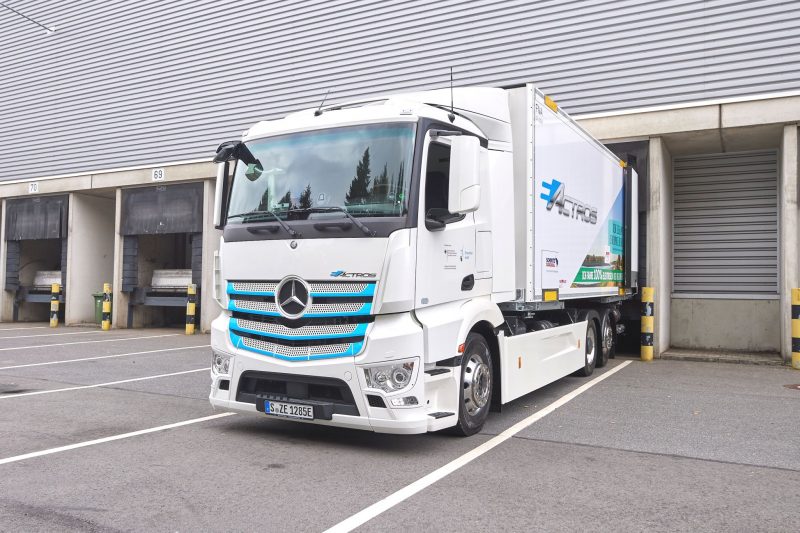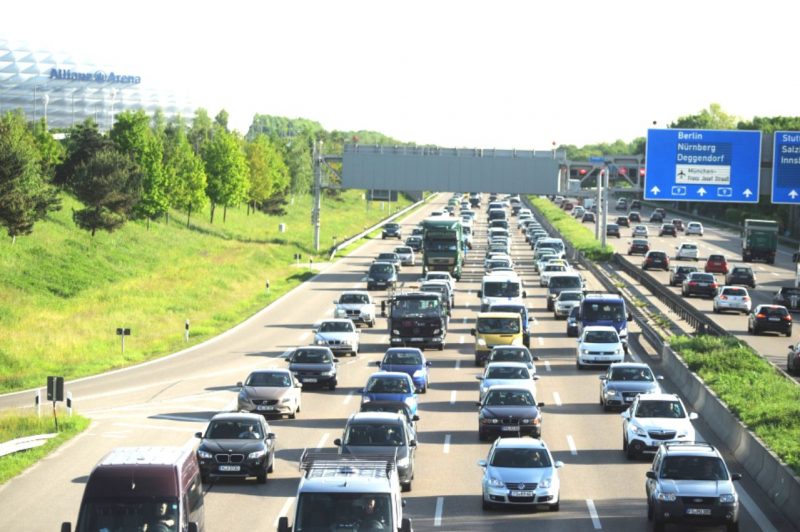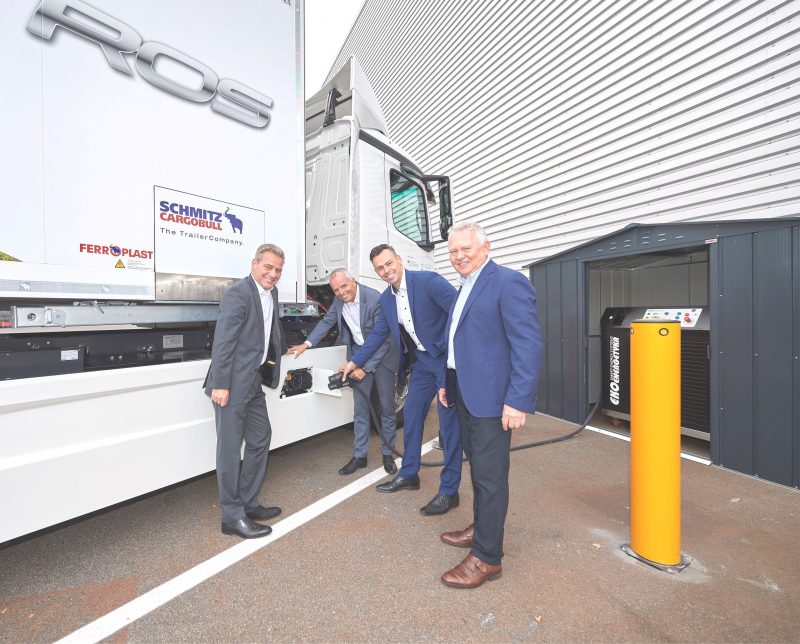Made in Germany : Electric trucks of the future
Europe’s strongest economy, Germany, which also leads the continent in the transport industry, has begun steps to move away from fuel-powered trucks to the more efficient and environment-friendly electric trucks. Daimler’s all-electric eActros Mercedes-Benz Trucks have been steered across roads in a number of German cities since September 2018 in line with the federal government’s push for cleaner environment by reducing carbon dioxide emissions, one of the many global pollutants that impact climate change.
More battery charging stations are being built across Germany as the country pushes for more electric trucks and other vehicles to be used in the foreseeable future.
The rest of Europe agreed to slash carbon dioxide emissions by 37.5 percent from new cars starting 2030. Under this European Union agreement, 15% cut for both cars and trucks should be targeted by 2021 despite strong opposition from car manufacturers.
Signed in December 2015, The Paris Climate Agreement envisions a fossil-free future for earth by 2050 to protect the environment and ultimately keep the global temperature rise well below 2°C.
Incentives to roll in 2019
Andreas Scheur, Germany’s Federal Minister for Transport and Digital Infrastructure, ordered electric trucks to be exempt from truck tolls from January 1, 2019 as part of the government’s long-term plan to encourage the use of alternative energy-powered vehicles.
 “Electric trucks will be exempt from truck tolls from 1 January 2019. This is a great incentive for transport companies to switch to green vehicles,” the minister was quoted as saying about the plan in Süddeutsche Zeitung, one of Germany’s largest daily newspapers.
“Electric trucks will be exempt from truck tolls from 1 January 2019. This is a great incentive for transport companies to switch to green vehicles,” the minister was quoted as saying about the plan in Süddeutsche Zeitung, one of Germany’s largest daily newspapers.
Growing urban emissions is one of the many problems facing cities and heavy trucks have been identified as among heavy polluters with a single truck consuming about 40 times the fuel consumption of a personal vehicle.
Germany is expanding its existing toll on trucks from nearly 15,000 km of federal highways to 40,000, leaving only the electric trucks exempt from paying toll fees as additional incentive to those switching to environment-friendly vehicles.
Further, the German government is continuing its “Concept ELV²” project which is essentially the development and testing of heavy-duty electric trucks for distribution operations with subsidy from the Federal Environ-ment Ministry (BMU) and the Federal Ministry of Economy and Energy (BMWi).
Gas-fueled trucks are also exempt from paying road toll charges from 2019 apart from a subsidy of up to EUR 12,000 for LNG trucks and up to EUR 8,000 for CNG trucks.
The Benz eActros
With the German freight logistics the largest in Europe with an estimated turnover of over EUR 170 billion annually, the country leads in innovation when it comes to modes of transport, interlinked roads, rails, water and air routes. Last October, Mercedes-Benz Trucks has delivered yet another all-electric eActros to a customer for on-road testing.
Meyer-Logistik, a company based in Friedrichsdorf in Hessen, will be test-driving a 25-ton truck with a refrigeration unit for transporting temperature-sensitive foodstuffs from the warehouse to different supermarkets in the centre of Hamburg.
The weight of the transported goods can be up to 10 tons. The whole day’s tour is approximately 100 km long and is dealt with by one driver in one shift at first. There is no need to recharge during the trip because the range of the eActros is up to 200 km.
Daimler said Meyer-Logistik is one of 20 customers from different industries that have integrated the heavy-duty electric truck into their fleet. Each of these selected customers will put a near-series version of either the 18 or 25-ton variant through its paces in real operations and will test the respective vehicle for its suitability for their daily field of work.
The aim is to make locally emission-free and quiet driving a reality in cities by 2021, also with series heavy-duty trucks – and all of this as economically viable as with a diesel truck. The test series consists of two phases, each with 10 customers and spanning a total of around two years.
The first eActros of the so-called “innovation fleet” has been in action since September with a customer, and the second one was handed over at the beginning of October. The rest of the first phase of vehicle hand-overs will be completed by the end of the year.
All test customers transport goods in urban areas and use the eActros for tasks which would otherwise be carried out by conventional diesel vehicles – in a wide range of different sectors and categories. The palette ranges from food to building and industrial materials. The body variants range from refrigerated and box bodies to bulk goods and tarpaulin bodies.
Field tests, the real benchmark
Oliver Kraft, Head of Key Account Management Mercedes-Benz Trucks Germany, said the practical tests of the eActros are very important for the company to gauge it effectively.

“That includes working together to define their individual requirements, choose the corresponding variant of the eActros and sort out questions about the required infrastructure. Before the tests started, our experts gave the drivers and the customers’ dispatchers thorough coaching,” he added.
Matthias Strehl, Managing Director of Meyer-Logistik, said using alternative drive concepts are an important aspect of their commitment to their customers.
“As a company that supplies supermarkets with foodstuffs in metropolitan areas, we would like to keep the impact of our work on humans and the environment as small as possible. That is why using alternative drive concepts has been such an important part of our corporate strategy long since. We are happy to be able to test drive the eActros in Hamburg now,” he said.
Adding: “We think e-trucks are perfect for delivering over that last mile – for example to supermarkets. Because they are locally emission-free and very silent, which really reduces the burden on local residents.”
The refrigerated replacement box on the eActros used by Meyer-Logistik is the “W.KO COOL” model supplied by Schmitz Cargobull. It has optimum insulation for energy-efficient transport of refrigerated goods.
This robust body is ideally suited for intensive day-to-day use. The purely electrically operated cooling unit functions completely emission-free and is specially designed for use in distribution traffic.
“Electromobility for commercial vehicles is a highly significant topic that opens up new opportunities. We use these with our refrigerated unit,” said Jörg Irsfeld, Head of IKAM at Schmitz Cargobull.
The truck of the future
The frame of the Mercedes-Benz Actros is used as the basis for the eActros. Otherwise, the vehicle architecture has been configured specifically for an electric drive system, with a high proportion of specific components.
The drive axle, for example, is based on the ZF AVE 130 that has already proved its worth in hybrid and fuel-cell buses from Mercedes-Benz, and has now been funda-mentally revised for the eActros.
The drive system comprises two electric motors located close to the rear-axle wheel hubs. They have an output of 126 kW each, together with a maximum torque of 485 Nm each. The gearing ratios turn this into 11 000 Nm each, resulting in a performance that is comparable with that of a diesel truck.
The maximum permissible axle load stands at the usual 11.5 tonnes. The energy comes from lithium-ion batteries with 240 kWh. Depending on the available charging capacity, they can be fully charged within two to eleven hours (at 150 and 20 kW).














